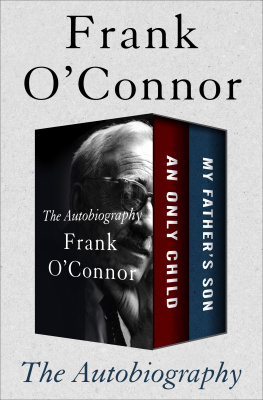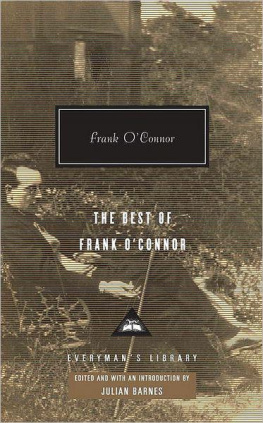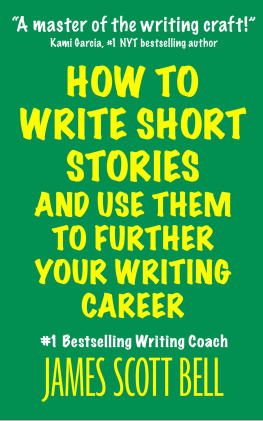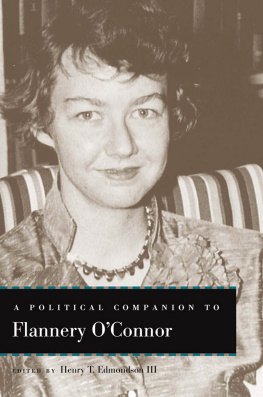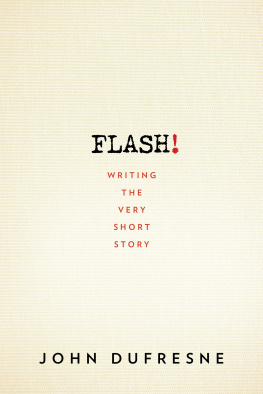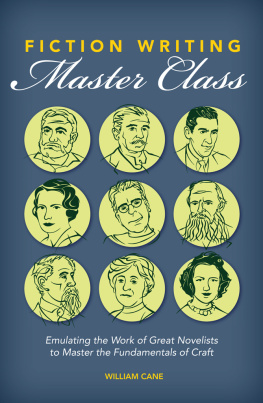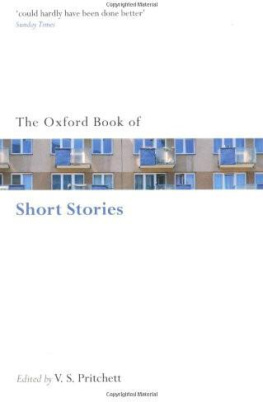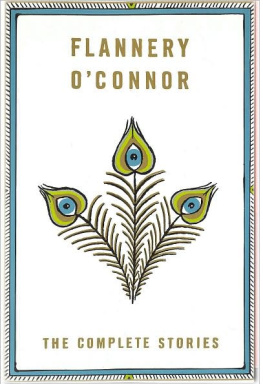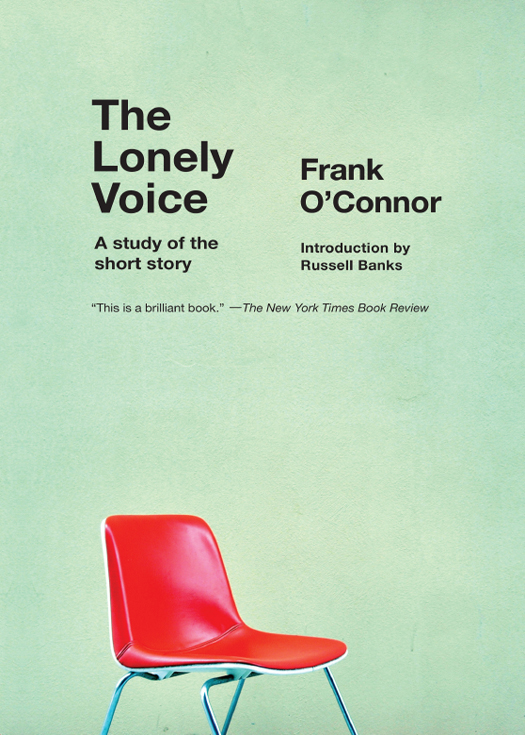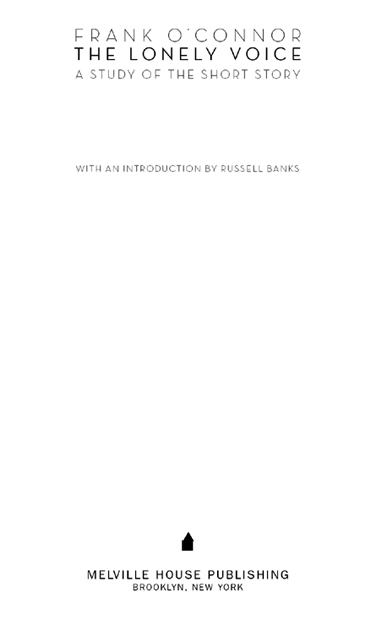2004 HARRIET ODONOVAN SHEEHY
INTRODUCTION 1985, 2004 RUSSELL BANKS
ALL RIGHTS RESERVED.
THIS BOOK WAS FIRST PUBLISHED BY THE WORLD PUBLISHING COMPANY IN 1963. TWO CHAPTERS APPEARED IN THE KENYON REVIEW BEFORE PUBLICATION.
MELVILLE HOUSE PUBLISHING
145 PLYMOUTH STREET
BROOKLYN, NY 11201
WWW.MHPBOOKS.COM
eISBN: 978-1-61219-017-4
v3.1
CONTENTS
The eternal silence of those
infinite spaces terrifies me.
PASCAL
INTRODUCTION
I first read this wonderful book in 1977 in Boston, when a friend who wrote short stories and like most writers enjoyed thinking and talking hard about why and how she wrote what she wrote decided that she had listened long enough to my complaints about the absence of any first rate criticism on the short story, an absence that, to my mind, was appalling, since the short story was practically the American national genre. What she gave me (loaned me, actually, and here I apologize for never having returned it) was a dog-eared, tattered, heavily underlined volume published in 1963 by The World Publishing Company in Cleveland. Though the book, resurrected briefly in the late 1960s in a Bantam paperback, had long ago gone out of print, writers more alert and diligent and obviously better read than I for years had been passing their copies around, quoting from it to their students, organizing and justifying their own work around many of OConnors theses, and arguing with them as well, while I, in my ignorance, had merely gone on complaining about the absence of such a book. And when at last I read The Lonely Voice and, so to speak, joined the illuminati, the effect on me at 37 was like the effect on me at 27 of Forsters Aspects of the Novel and at 17 of Pounds ABC of Reading: gratitude for having received sound instruction and profound annoyance with myself for not having got it sooner.
When Frank OConnor wrote The Lonely Voice he was almost 60 and was widely recognized both here and abroad as the master of the modern short story, and for that reason he was invited by Wallace Stegner and Malcolm Cowley to journey from his temporary quarters in Brooklyn Heights to palmy Stanford for a term or two, where OConnor would be paid rather handsomely ($8,000) to teach two courses, one a lecture, the other a writing workshop. The workshop met twice a week, and according to OConnors biographer, James Matthews, he faced them with a feeling of dread. The young fictioneers at Stanford in 1961 included Larry McMurtry, Ken Kesey, James B. Hall, Peter Beagle, Christopher Koch, Robert Stone, Fanny Howean elite group of student writers, many of whom have since produced distinguished work. But the workshop did not go well, it seems. This was the start of the sixties, and it was evidently difficult for a man who, as Stegner put it, was esteemed one of the greatest short story writers in the world had been one of the youngest, but by no means the least, of the group who made the so-called Irish Renaissance had acted in and directed the Abbey Theater, had known Lady Gregory and AE and Dr. Oliver St. John Gogarty and could speak of Jimmy Joyce and Willie Yeats without the slightest implication of name-dropping, difficult if not impossible for such a man to impress the Young Turks. In those days, you were either on the bus or off the bus, and no doubt Frank OConnor preferred to walk anyhow.
The lectures he delivered, however, were a smashing success. Prompted by the recent publication of an anthology of short stories edited by Sean OFaolain, which he thought preposterous, and a need perhaps to sum up a lifetimes ruminations and writings on the subjecttheories and beliefs hammered out and tested in lectures, arguments, essays, debates, and discussions for over forty yearsOConnor decided to write and deliver the series of lectures that became The Lonely Voice. The Stanford audience responded appropriately. Stegner, whose son was one of OConnors graduate assistants, wrote of the lectures, Few missed them, though attendance at class lectures is normally pretty casual; and if any did miss, their chairs were snapped up by visitorsfaculty wives, random graduate students, colleagues, undergraduates from elsewherelurking at the doors. The window sills were commonly full of bodies, the attention was respectful, laughter went up and down the room. A good part of that delighted response was undoubtedly response to a personality, and some of it was probably frivolous. OConnor was a fascinating man, protean and witty. His voice was a great basso cantabile, he had a lovely brogue and eloquent eyebrows and a twinkle in his eye. But though this ladies-club titillation explained some of the visitors and was a fairly constant element in the responsiveness of the students as well, no one in the room could have missed the fact that the talk about literature that came from the platform was not stale from lying in some bin, periodically sprinkled to keep it from too badly wilting. This was fresh from the garden, it had dew on it.
What OConnor set out to do, for himself and his audience at Stanford, is what many of us who teach fiction-writing in colleges and universities try to dosay what a short story is and is not. This is not as easy as one might think, certainly not as easy as ones students tend to think. For one thing, the short story is the most recently invented literary form and is still, clearly, in the process of being invented. Those of us who write them, when we sit down to write yet another, all too often feel that we are at the very beginning of the history of the genre and therefore do not know what to do. Wheres the tradition! Chekhov or Barthelme? Joyce or Kafka? Aside from their stories being short, what do they have in common? Also, to make matters worse, according to OConnor, For the short story writer there is no such thing as essential form. Because his frame of reference can never be the totality of a human life, he must be forever selecting the point at which he can approach it, and each new selection he makes contains the possibility of a new form as well as the possibility of a complete fiasco. Its a little like Frosts definition of free verseplaying tennis without the net.
OConnors way of coping with the anxiety such a situation creates is to forget about the aspect of the short story that is usually made so much of, its brevity, relative to the novel, and to examine what insists on that brevity, which is to say, content. One can put this crudely, he writes, by saying that the form of the novel is given by the length; in the short story the length is given by the form. Quoting Turgenevs famous remark, We all came out from under Gogols Overcoat, OConnor early on examines the content of that masterpiece, and he discovers that, So far as I know, it is the first appearance in fiction of the Little Man, which may define what I mean by the short story better than any terms I may later use about it. The presence of the Little Man in Gogols Overcoat and later in the stories of his beloved Chekhov, Coppard, Lawrence, Sherwood, Anderson, Joyce, and so on down the line to J. D. Salinger, convinces OConnor that, In fact, the short story has never had a hero. What it has instead is a submerged population groupa bad phrase which I have had to use for want of a better.
Poets would not find this way of thinking about form as strange as fiction writers sometimes do (OConnor began as a poet and was a lifelong translator of early and medieval Irish poetry); the subject that begs to be sung as an epithalamium would be ludicrous as a sonnet, an epif and a ballad are different in more essential ways than length. Simply put, they have different subjects, and most poets believe that in a profound way all writing is occasional. It may be somewhat more radical, however, for OConnor to find social differences among genres, but why not? If the novel, born out of nineteenth century industrialized Europe, is the form that posits a normal society and offers us a hero whose actions define that normalcy, is it not reasonable to see writers of the twentieth century, with the disintegration of tribe, nation, family, and church, with the breakdown of all the old assumptions about shared values, turn their affections toward a form that remains by its very nature remote from the communityromantic, individualistic, intransigent?


